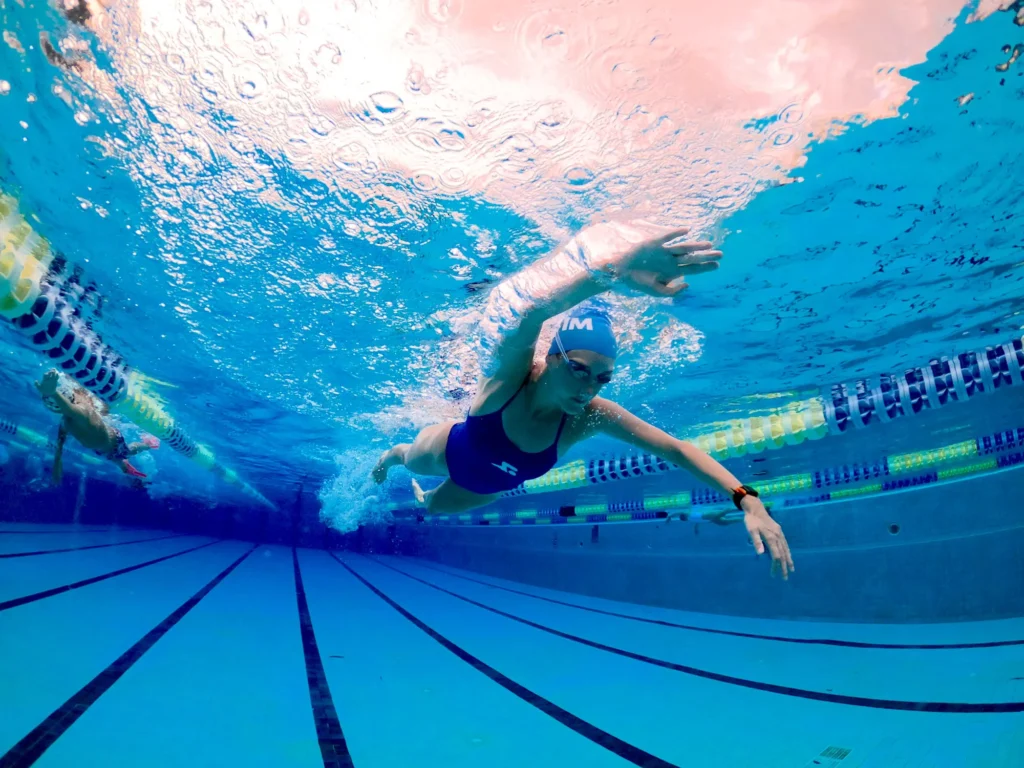Swimming is not just a sport; it’s a lifelong skill that offers a plethora of physical and mental benefits. Whether you’re gliding through the water with the elegance of a dolphin or simply enjoying a leisurely swim, the benefits of this activity are undeniable. In this article, we’ll explore the various aspects of swimming, from its health advantages to its recreational appeal.
Benefits of Swimming
Physical Health Benefits
Swimming’s is a full-body workout that engages almost every muscle group in the body. It improves cardiovascular health, strengthens muscles, and enhances flexibility. Moreover, it is a low-impact exercise, making it suitable for individuals of all ages and fitness levels.
Mental Health Benefits
Beyond its physical benefits, swimming’s also has numerous mental health benefits. The rhythmic motion of swimming’s can be meditative, promoting relaxation and reducing stress levels. Additionally, the release of endorphins during exercise can improve mood and overall well-being.
Different Swimming Strokes
Swimming encompasses various strokes, each with its own technique and benefits. These include freestyle, backstroke, breaststroke, and butterfly stroke. Each stroke targets different muscle groups and offers a unique swimming’s experience.
Swimming Equipment
To enhance the swimming’s experience, it’s essential to have the right equipment. This includes swimsuits that provide comfort and mobility, goggles to protect the eyes and improve visibility underwater, and swim caps to reduce drag and keep hair out of the face.
Safety Tips for Swimming
While swimming is a enjoyable activity, it’s important to prioritize safety. Always swim in designated areas with lifeguards present, and never swim alone. Additionally, knowing one’s limits and practicing proper pool etiquette can prevent accidents and injuries.
Swimming Techniques
Mastering proper swimming’s techniques is key to improving efficiency and preventing injury. This includes mastering breathing techniques, maintaining proper body positioning, and refining stroke mechanics.
Swimming for Fitness
Swimming is an excellent form of exercise for improving fitness levels. It provides a cardiovascular workout while also building strength and endurance. Additionally, swimming’s can help individuals achieve weight loss goals by burning calories and toning muscles.
Swimming for Rehabilitation
Swimming is often used as a form of rehabilitation for individuals recovering from injuries or dealing with chronic conditions. Its low-impact nature allows for gentle exercise that can improve mobility and reduce pain. Hydrotherapy, in particular, utilizes water’s buoyancy and resistance to aid in rehabilitation.
Swimming as a Recreational Activity
Beyond its physical benefits, swimming’s is a popular recreational activity enjoyed by people of all ages. Whether it’s a family outing to the local pool or a beach vacation with friends, swimming’s fosters bonding and creates lasting memories.
Swimming Competitions
For those with a competitive spirit, swimming’s offers a range of opportunities for competition. From local swim meets to international competitions like the Olympics, swimmers can showcase their skills and compete against others in various events.
Overcoming Fear of Water
Overcoming fear of water is a common challenge for many individuals. Gradual exposure to water, combined with swimming’s lessons from qualified instructors, can help build confidence and overcome anxieties associated with swimming’s.
Environmental Impact of Swimming
While swimming’s is a sustainable form of exercise, it’s important to be mindful of its environmental impact. Pool chemicals can have adverse effects on water quality and aquatic ecosystems, so practicing responsible pool maintenance and using eco-friendly products is crucial.
Swimming and Weight Loss
Swimming is an effective exercise for weight loss, as it burns calories and tones muscles simultaneously. Its low-impact nature makes it suitable for individuals with joint issues or mobility limitations, allowing them to engage in regular exercise without exacerbating existing conditions.
Swimming and Stress Relief
In today’s fast-paced world, stress relief is more important than ever. Swimming’s offers a therapeutic escape from the pressures of daily life, allowing individuals to disconnect from technology and reconnect with themselves in the calming embrace of water.
Conclusion
Swimming is more than just a recreational activity; it’s a holistic approach to health and well-being. Whether you’re looking to improve your fitness levels, bond with loved ones, or simply unwind after a long day, swimming’s offers something for everyone. So, dive in and discover the countless benefits of this timeless activity.

